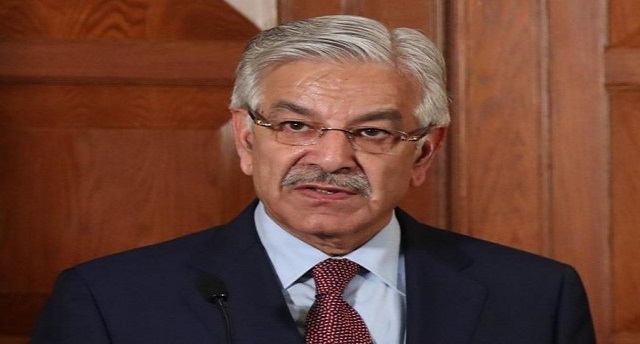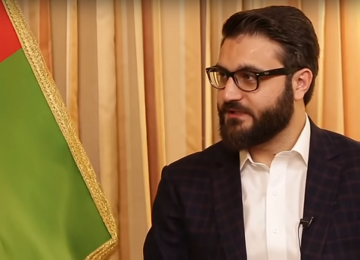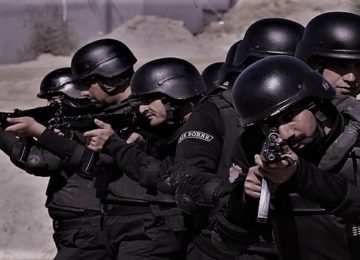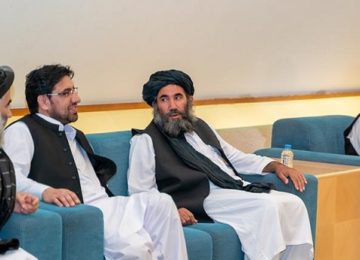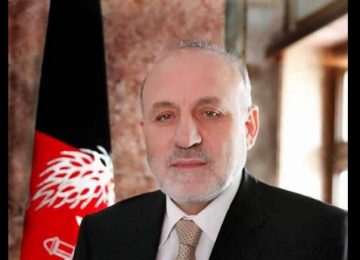Pakistan will press for a political solution to the Afghan conflict in the two-day international peace conference on Afghanistan in Tashkent, a Pakistani official said on Sunday.
Foreign Minister Khawaja Muhammad Asif will represent Pakistan in the conference on “Peace Process, Security Cooperation and Regional Connectivity.”
The forum in the Uzbek capital will begin on March 26, and will be attended by global and regional powers as well as Afghanistan’s neighbors, the foreign office said.
A Paksitani senior official, a member of the Pakistani delegation to the Tashkent conference, told Arab News that the main agenda is “peace and stability in Afghanistan by promoting cooperation for Afghan reconciliation and in counterterrorism and counter-narcotics.
“Our effort is that the conference should focus on the peace effort. We will plead that regional counterterrorism cooperation should be based on engagement, not criticism,” he said.
An Uzbek foreign ministry’s statement said Afghan President Ashraf Ghani will deliver a keynote speech at the opening ceremony of the conference.
The conference comes weeks after Ghani unveiled his peace strategy for talks with the Taliban insurgents. The plan includes recognition of the Taliban as a political party, allowing the group to open an office in Kabul, removing the names of Taliban leaders from the UN sanction list, and releasing Taliban prisoners.
The Taliban played down Ghani’s peace overture and in two letters to the American people and congressmen last month called for direct dialogue with the US to end the Afghan war, saying increased US military airstrikes under Trump’s new strategy have not “retaken even a single inch of land” from the insurgency.
Central Asian states have had only limited involvement in the Afghan issue, but the growing threat of Daesh and the prolonged war in Afghanistan have forced them to play an active role.
Uzbekistan says President Shavkat Mirziyoyev has organized the Tashkent conference jointly with the Afghan side as an important part of the country’s strategy to provide regional security and stability.
International and regional initiatives have failed to broker any peace negotiations between Kabul and the Taliban.
Besides the Kabul process, other initiatives include Moscow Format, the Heart of Asia — Istanbul Process, the Quadrilateral Coordination Group of Afghanistan, China, Pakistan and the US, the International Contact Group on Afghanistan, the SCO-Afghanistan Contact Group and the Regional Economic Cooperation Conference on Afghanistan (RECCA).
Pakistani officials believe Uzbekistan is trying to “please both the US and Russia” in view of its relationship with both countries.
“The US and Afghanistan are seeing it as continuation of the Kabul process, while Russia is trying to use its influence over Uzbekistan to bring its point of view,” an official said.
A Pakistani official who is privy to the consultations underway in Tashkent said there will be no mention in the conference declaration of the presence of the foreign troops.
“The declaration will not talk about it,” he told Arab News.
An Uzbek foreign ministry statement said the conference will adopt the “Tashkent declaration” to suggest the peace process should be Afghan-led and Afghan-owned and in accordance with the provisions of resolutions and decisions of the UN General Assembly and Security Council.
Among those invited to the Tashkent meeting are the UN Secretary General Antonio Guterres and Special Representative of the Organization for Afghanistan Tadamichi Yamamoto, the EU High Representative for Foreign Affairs and Security Policy Federica Mogherini, as well as foreign ministers of China, Russia, US, UK, France, Germany, Italy, Turkey, India, Iran, Pakistan, Kazakhstan, Kyrgyzstan, Tajikistan, Turkmenistan, Saudi Arabia and the United Arab Emirates.
This piece originally appeared on www.arabnews.pk on March 26, 2018. Original link.
Disclaimer: Views expressed on this blog are not necessarily endorsed or supported by the Center for Research and Security Studies, Islamabad.



